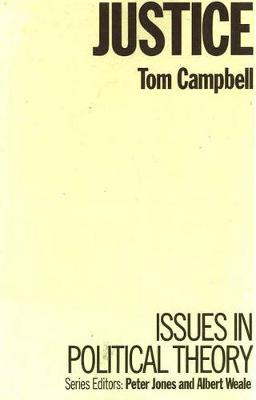Issues in Political Theory
1 total work
Political theorists agree that justice is a fundamental political value but disagree profoundly about its proper analysis and philosophical justification. This book sets out the main contending theories of justice as exemplified in the works of John Rawls, Ronald Dworkin, Bruce Ackerman, Richard Posner and Wojciech Sadurski. Each approach is introduced in its own terms, assessed in accordance with its ability to generate a clear, consistent and illuminating account of justice as a distinctive social, political and legal value, and then assessed in a specific area of practice, such as welfare rights, the protection of minorities, the distribution of income and criminal law. A recurrent theme of the book is the advantage of adopting a meritorian account of justice as having to do with the 'equal worth and unequal worthiness' of human beings, always provided that this analysis is detached from the usually unargued assumption that justice is necessarily the overriding political value. In particular it is demonstrated that merit-based theories can once more unite the ideas of legal justice and social justice that have become unacceptably distinct in contemporary applied philosophy.
In a concluding chapter, which as bearing on current debates on the nature of socialism in modern society, theories of justice are examined from the point of view of the Marxian critique of liberalism, and the role of meritorian justice within socialism is also explored.
In a concluding chapter, which as bearing on current debates on the nature of socialism in modern society, theories of justice are examined from the point of view of the Marxian critique of liberalism, and the role of meritorian justice within socialism is also explored.
